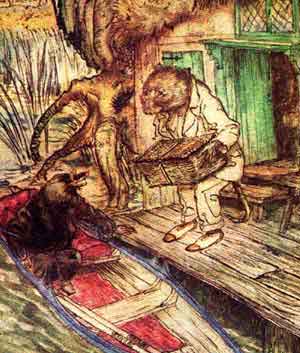1983...1986, 1987...
In the sequestered week I described just below, I finished Alan Hollinghurst's The Line of Beauty, a book I pounced on as soon as I'd heard of it, hailed to friends to look for when it won the [link] Booker, and then could only read in sleepy bits as my patient got worse last year. I was too tired with duties to give it the attention it deserved, and from the first third (1983, pressing into 1986), I knew it was too good to give less than my full attention, and now I had the license to give it.
[If you haven't read Hollinghurst before, I recommend checking out Colm Toibin's piece on this one in the NYRB of last year [V.52, n.1 - Jan 13, 2005] - it is not, unfortunately, free on-line, but it's a lovely summation of his work so far, and how The Line of Beauty extends his achievement. I'll quote from hardcopy in the following.]
Nick Guest, our mirror and lens, is down to London after taking a first-class degree at Oxford, preparing to pursue some - rather vague - post-graduate studies on Henry James and style. His perch is the Kensington Park Gardens house of his school friend Toby's family, the Feddens - Dad is the Tory MP for Nick's market-town home constituency, his wife of a distinguished and fabulously wealthy Jewish family, at whose country house the Master was himself a guest, from time to time. Nick is Out, but not yet about, and like many a Jamesian principal, he finds himself in unexpectedly deep waters. He is also acutely observant, ambitious, and - distinctly unlike your usual Jamesian hero - intensely, explicitly horny.
Hollinghurst, thank god, does not write coming-out stories. That grand first step is as nothing compared to the world that comes after. Nick announced he was gay, at school, before he had ever had man2man sex, but his sexual education, in 1983, is poised alongside the Thatcher landslide of that year, the rising fortunes of his host family, and the shadow of AIDS in the deep end.
There is no separating Nick's aesthetic from his sexual hunger or savor. Hollinghurst writes wonderfully about sex - it's hot - but I think it's as accessible to straight as it is to gay readers. Nobody gets caught (or should I say pinned, like a specimen), in the narrator's eye, in bed, in a park, in a t-room - lust gets very free rein, and all its delicious triggers, but fucking itself, are given the respect of privacy and tact. That keeps it on everyone's mind, all the time, and in this particular social comedy, that's as it should be.
As Toibin points out, quoting the narrator of The Folding Star, for Hollinghurst's gay heroes, "...the world of heterosexual feeling [is] never fully plausible." As a gay American reader, this is a kind of confidence - both a privacy and an assurance - that US gay culture too often dances around. I am sure heterosexuals feel exactly the same thing about me - neither of us should deny it, however. Taking that plausibility for granted gets Nick into considerable trouble - that and his empathy, which, while he is out of them himself, feeds the monsters in other peoples' closets.
I was on a pivot myself, in 1983, moving from one distant city to another one, and while I hung between them, the plague flags went up. It's a shock to jump from Nick's deflowering of 1983 to his confident cruising of the Hampstead Ponds in 1986, "grown slowly and unseriously heavier" in the years between (Hollinghurst knows what a daily 50 laps in the pool can do, I suspect, viz. The Swimming-Pool Library]). The middle distance is beginning to pile up with the lost. In a reader who had been there, who had shoved the cork back in the bottle, this is terrifying, and engenders envy. Nick is careful, to a degree - he's certainly not oblivious - but he's not overwhelmed by the paranoia, the panic, that was sweeping the United States at the time. There's no Larry Kramer on the scene, no ActUp, that I know about (and anyone in the UK who knows better, please comment). When the shit hits Nick's fan, it's in the form of classic British tab scandals, and it follows from an act of discretion, a fault of foresight, and some willful misreading of sex, love, politics and economics that could constitute a coat of arms for the Thatcher Era. Or the Reagan Era, for that matter.
At a certain point, you face the Beast in the Jungle - it comes for you, or you go after it. There is going to be blood, either way. Some of it - many pints, actually - go into Nick's OGEE, a luxury item magazine, part coke-dream, part reflection of Nick's love of the world's beauty - lustrous, and as he observes himself, somewhat malign - black-bound, glittering, akin to his friend Toby's sister's worst fears of a poisonous universe. The spine is flanked by mirrored Borromini angels' wings, forming the double curve of baroque churches, onion domes, Alhambra arches, the curve of a lover's back. It's ephemeral, but it's still a treasure.
Subscribe to:
Post Comments (Atom)

No comments:
Post a Comment